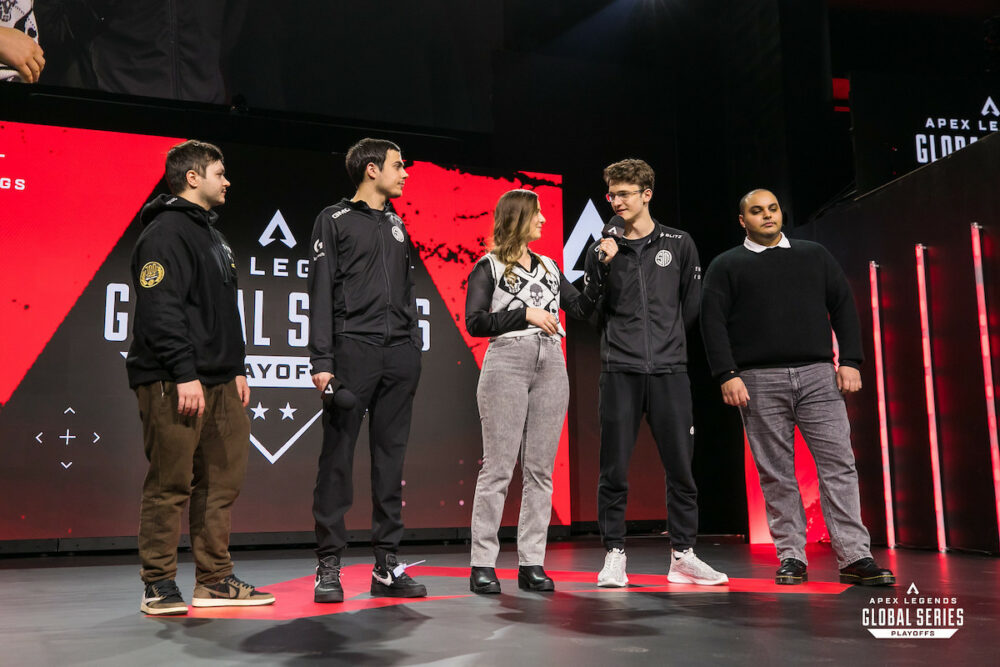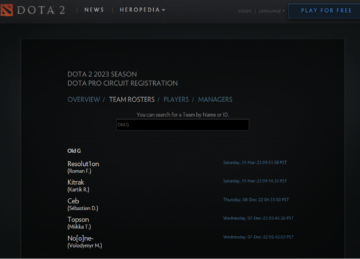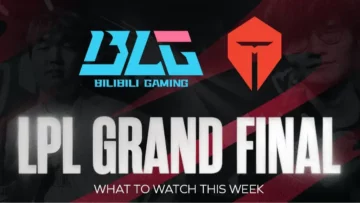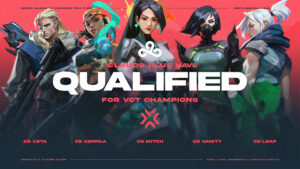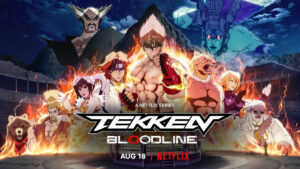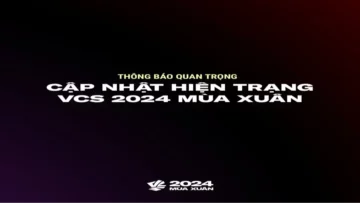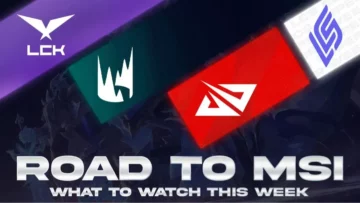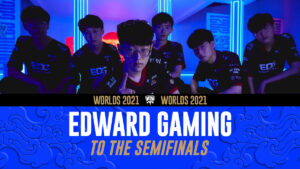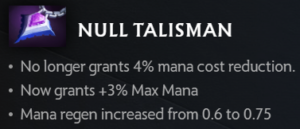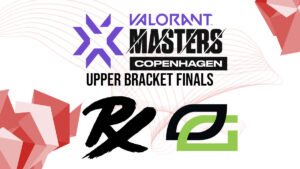Image credit: TSM
Some things to address before the ALGS Split 2 Playoffs in London, again.
When it was all said and done, it was TSM who rose to the occasion, winning their third international ALGS LAN title. Having secured the ALGS Split 1 Playoff title, this puts TSM as the only three-time LAN champion so far, going one above DarkZero Esports. And of course, this win further fueled TSM’s ‘comeback season’ storyline after having an uneventful couple of years.
But there was more to the ALGS Split 1 Playoffs than just TSM’s historic victory. The likes of both APAC North and South showing up to play brought new recognition to the region, which has not been given the respect it deserves in recent years. Even the EMEA region featured plenty of talent, which goes to show that it isn’t only North America that can compete (although NA did come out on top in the end!)
North America edges out on top
Of the top 10 teams in the ALGS Split 1 Playoffs, three of the top five were from NA with Acend and Alliance from EMEA taking third and fifth respectively. APAC dominates the mid-table of the top 10 teams with Moist Esports and ONIC Esports from APAC South taking sixth and seventh respectively while Fnatic from APAC North finished eighth. Element 6 comes in at ninth, EMEA’s third team in the top 10, and Luminosity Gaming from NA rounds up the list.
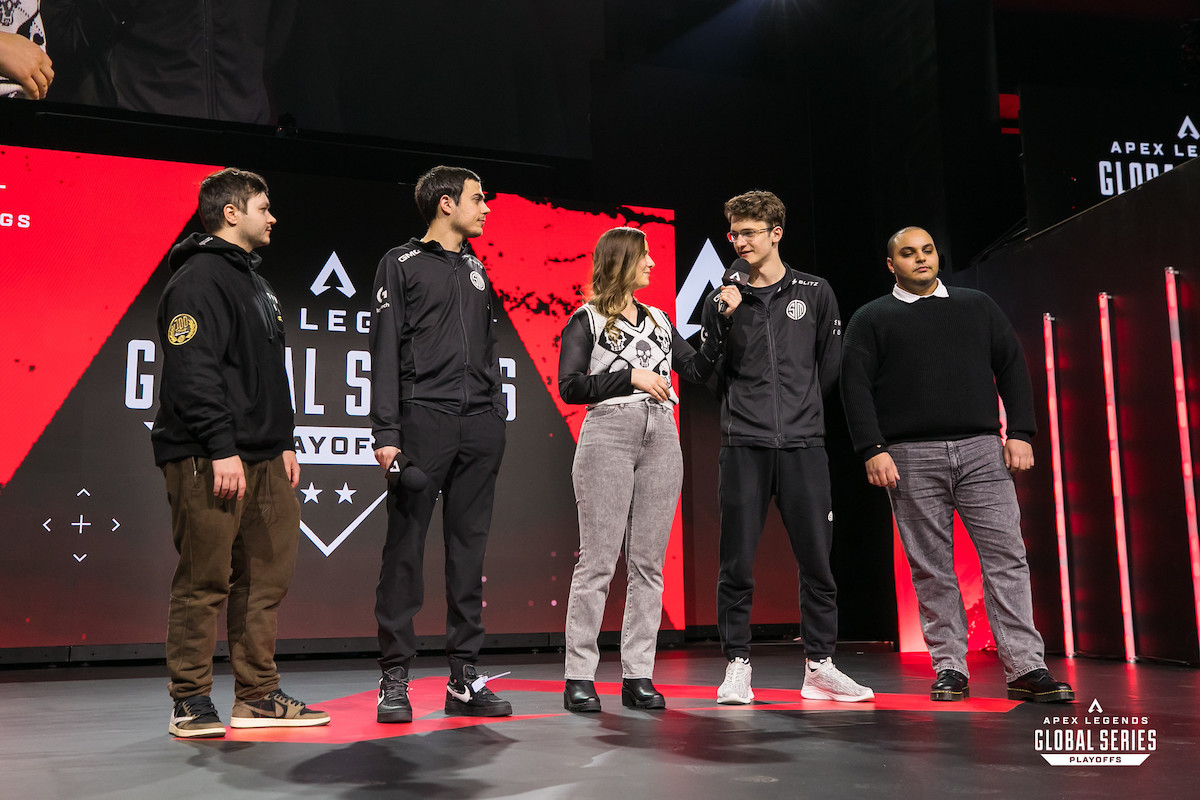
With NA coming out on top in the end as well as claiming a good 40 per cent of the top 10, it’s fair to see why it’s seen as the most competitive region. But of course, it still has to be on its toes with APAC and EMEA catching up. Alliance and Acend have always been some of the top teams in the EU and their top 10 finish further solidifies their claims. As for APAC, their dark horse status has been since elevated to possible contenders with both Moist and ONIC leading the charge. Both teams have been some of APAC South’s best teams, bringing further recognition to the smallest region in the ALGS.
Not enough NRG
Close, but not quite close enough. NRG was arguably the most consistent team in the last two days of the ALGS Split 1 Playoffs. They dominated during the upper bracket series without even securing a win. Of the six games in the series, NRG had three games where they finished in the bottom five and just two kills. But in their other three games, they finished in fourth, second, and seventh with a combined kill count of 40.
This just goes to show how lethal NRG can be when they are locked in. And to start the finals with the maximum amount of advance starting points, NRG was also the first team to secure match-point in just four matches, making them the fastest team in ALGS history to do so. Their first three games had two top-five placements but with only four kills split amongst the two while game three didn’t yield anything.
However, NRG popped off in game four by not only securing the win but ending it with a 20-kill count as well. They then came close in game six but could only finish second as they fell to Acend. And by then, it was not only NRG who was on match-point, but so were Acend and TSM. And in the seventh and eighth games, NRG petered away slowly, finishing in 12th and 14th respectively.
But all things considered, a second-place finish with the highest points tally in the finals proves that NRG is still one of the world’s best teams. And this comes after a roster change at the start of the season, which always requires time before it starts working flawlessly.
Orgless South Korean teams actually made it
Of the 40 teams that qualified for the ALGS Split 1 Playoffs, three were without sponsors with that being Passion (a Finnish team that was previously known as Horizon Union) as well as ganbare otousan and fun123 from South Korea. And of these three orgless teams, only two made it to the finals and that was GO and fun123.
While fun123 had the easier route of securing a top 20 in the group stage as well as a top 10 finish in the bracket stage, GO had to play in both lower bracket series to make the cut. And in the finals, it was GO who secured a first, second, and third-place finish in the finals, which ultimately landed them in 12th. As for fun123, their finals run was less than ideal, only managing one top-three finish and another in the top five.
This gave GO 15,000 USD and 150 playoff points while fun123 got 13,000 USD and 130 playoff points; not too bad for two orgless South Korean teams that made it all the way to the grand finals.
Visa Issues plagued the ALGS
When EA first announced that the Split 1 Playoffs (alongside two future LANs) will be held in London, England in late December, many questioned whether it would be easy to obtain visas heading into the UK. And sure enough, four teams were directly affected due to visa issues.
Dewa United Esports from Indonesia was the first team to be directly affected with the team failing to obtain their visas on time. They were replaced by DreamFire from China but due to the rushed nature of them being a replacement team, two of their players couldn’t attend the playoffs. This forced the team to play with two stand-ins instead.
And from then on, it was a domino effect as more teams started to pull out after failing to obtain their visas. Both Aurora Gaming and Fire Beavers were the two other teams who couldn’t make it to the LAN. However, this was mostly due to the ongoing Russia-Ukraine conflict with both teams fielding Russian squads. Aurora was replaced by Horizon Union while Passion took Fire Beaver’s spot.
Alliance was also affected by visa issues with their 17-year-old prodigy, Miron “Effect” Novikov being unable to obtain his visa due to his residency in Russia. Due to the ongoing conflict, Effect has also chosen to not be represented by the Russian flag and has instead, chosen to be country-less. Alliance got long-time stand-in, Mikkel “Mande” Hestbek to play as the team’s third.
JLINGZ Esports was a shrewd last-minute signing
The orgless team known as VZN were supposed to compete at the ALGS Split 1 Playoff before they were signed by JLINGZ Esports, which is owned by Nottingham Forest football player, Jesse Lingard. And with the announcement falling on the same day as the LAN, it seemed like a shrewd signing given the hometown effect of the team.
And thankfully, it worked out as JLINGZ finished sixth after the group stage. This came after a 71-point performance from the boys in the first round, the second-highest in the group stage for the ALGS Split 1 Playoffs. Only XSET and Acend share the record with 72 points in a single day.
Unfortunately, the team couldn’t make it all the way through after their dominant first round. They ended up in 19th in the upper bracket before dropping to the lower bracket final. From there, they were just three points shy of making it to the finals. But on the plus side, the team’s main fragger, Zaine “Zaine” Kazi ended the tournament in seventh for most kills with 54, the highest in the EU.
TSM’s comeback starts now
After a disastrous couple of years with little to show for it, it’s safe to say that TSM is back. The team had looked rocky in the past season, which saw them finish in sixth at last year’s ALGS Split 2 Playoffs as well as seventh in the ALGS Championship. Having presumably hit almost rock bottom, the team went out in search of a coach that could bring something new to the table; and that it did.
Having appointed Raven as their coach and analyst in August last year, results were steadily improving for the team, which was evident during the Split 1 NA Pro League that took place at the tail-end of 2022. TSM ended the nine-day group stage with 127 points, which includes three 25-point tallies in days one, four, and nine. This was enough to give them a comfortable lead over the rest of the pack, even if they didn’t perform well in the finals.
No less than two months later, they end up winning the Split 1 Playoffs. With the introduction of raven into the fold, he brought a new approach and composition to TSM, allowing them to be aggressive and on the front foot while also giving valuable input on both the macro and micro level. TSM’s overall gameplay during the tournament would probably be far from satisfactory given their lofty standards, but it does tend to be a roller-coaster experience when one is a fan.
The team had a great group stage series by finishing first. But in the bracket stage, they just couldn’t find their rhythm. Whether it be bad zones that pull away from them, unfortunate timings on the rotations, or even a lack of loot to finish a one-versus-one, TSM still somehow managed to end within the top 10 and made it to the finals.
They started off the final day with a third-place finish to go with 15 kills but their momentum was then cut short with a 19th and 15th finish as well as seventh. However, the team found their groove once more and managed to finish in second on game five along with nine kills. This gave them match-point and just three games later, TSM took that chance.
A risky Valkyrie ultimate by Evan “Verhulst” Verhulst worked out for the team as they managed to claim god spot before wiping out two teams and finishing of Acend in style. With that win, TSM becomes the only team to win three ALGS LAN titles with DarkZero Esports still at two. It also puts TSM’s IGL, Phillip “ImperialHal” Dosen in a league of his own – he is the only player in ALGS history to win a tournament on both mouse and keyboard as well as controller.
The debate continues
And speaking of the Apex Legends inputs, many arguments have been made between the MnK-versus-controller debate. Sure, controller is unlike anything else with aim assist, especially in close-quarter fights. But MnK provides great movement and control over your character, which makes tap-strafing, super gliding, and other Apex mechanics essential tools in one’s arsenal.
With the ALGS Split 1 Playoffs now over, it is clear on which input comes out on top. Of the top 10 players with the most kills, seven were on MnK while only three were on controller. And of the 121 players that competed at the ALGS Split 1 Playoffs, less than 37 per cent were on controller where as MnK had more than 61 per cent.
Of course, you are free to choose on which input you would want to play with. There are both advantages and disadvantages when it comes to both MnK and controller so go with whichever makes you play best. And if you can hack it, play on both as well for a much greater challenge.
With that marking the end of the ALGS Split 1 Playoffs, it will now be the off-season where teams will be making their roster shuffles. Be sure to tune back for more Apex Legends news.
- SEO Powered Content & PR Distribution. Get Amplified Today.
- Platoblockchain. Web3 Metaverse Intelligence. Knowledge Amplified. Access Here.
- Source: https://www.gosugamers.net/entertainment/news/64984-7-things-worth-talking-about-at-the-algs-split-1-playoffs
- 000
- 2022
- 7
- About
- Acend
- address
- advance
- advantages
- affected
- aggressive
- ALGS
- ALGS Championship
- All
- Alliance
- Allowing
- alongside
- Although
- america
- amongst
- amount
- analyst
- announced
- Announcement
- Another
- Anything
- apac
- APAC North
- apex
- Apex Legends
- apex legends news
- appointed
- approach
- arguments
- Arsenal
- as
- attend
- AUGUST
- aurora
- before
- BEST
- between
- bottom
- bring
- bringing
- brought
- challenge
- Championship
- chance
- change
- charge
- China
- claim
- claims
- coach
- combined
- coming
- compete
- competed
- Competitive
- conflict
- considered
- Contenders
- Control
- controller
- could
- Couple
- course
- credit
- Dark
- DarkZero
- DarkZero Esports
- day
- debate
- December
- deserves
- DID
- dominant
- During
- ea
- easier
- Effect
- EMEA
- England
- esports
- essential
- EU
- experience
- fair
- Fastest
- featured
- fights
- Final
- finish
- Fire
- First
- fnatic
- Football
- forced
- Free
- front
- further
- future
- game
- gameplay
- Games
- Gaming
- given
- Giving
- going
- good
- GosuGamers
- grand finals
- great
- greater
- Group
- hack
- having
- heading
- highest
- history
- horizon
- Horizon Union
- horse
- How
- HTTPS
- image
- Imperialhal
- improving
- includes
- Indonesia
- International
- introduction
- issues
- IT
- Keyboard
- Kills
- known
- korea
- Korean
- lack
- LAN
- last
- lead
- leading
- League
- Legends
- Level
- List
- Little
- locked
- London
- looked
- Luminosity
- Luminosity Gaming
- Macro
- make
- MAKES
- Making
- managed
- managing
- matches
- maximum
- Mechanics
- Moist Esports
- Momentum
- months
- more
- movement
- na
- nature
- New
- news
- Nine
- North
- north america
- Nottingham Forest
- NRG
- obtain
- One
- ongoing
- Other
- own
- owned
- passion
- Past
- perform
- performance
- placements
- plato
- plato data intelligence
- platodata
- platogaming
- play
- player
- players
- Playoffs
- Plenty
- Plus
- Points
- possible
- previously
- Pro
- Pro League
- probably
- proves
- provides
- qualified
- quite
- Raven
- recognition
- record
- region
- requires
- residency
- REST
- Results
- Rhythm
- Rock
- Rocky
- ROSE
- roster
- rounds
- Route
- Run
- Russia
- Russian
- s
- safe
- Said
- Satisfactory
- Search
- season
- secure
- secured
- securing
- Series
- Share
- Short
- signed
- signing
- SIX
- So
- so Far
- something
- South
- South Korea
- Speaking
- split
- Split 1
- sponsors
- Spot
- Stage
- standards
- start
- started
- Status
- steadily
- still
- storyline
- style
- super
- Supreme
- table
- taking
- Talent
- talking
- Tally
- Team
- teams
- The
- the boys
- the world
- things
- third
- Through
- time
- Title
- titles
- tools
- top
- tournament
- TSM
- Uk
- ultimate
- unfortunate
- union
- United
- United Esports
- up
- upper
- USD
- valuable
- visa
- Visas
- well
- WHO
- win
- winning
- within
- worked
- working
- world
- worth
- XSET
- year
- years
- Yield
- zephyrnet
